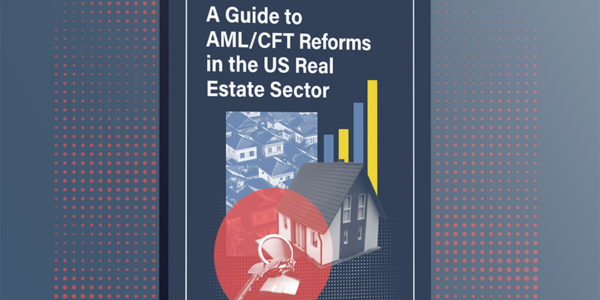

Real estate fraud can take on a variety of forms, targeting different parts of the property buying or rental process. Title fraud is considered relatively rare compared to other property scams – such as mortgage fraud or business email compromise (BEC) scams. However, the repercussions can be devastating, and a recent surge of this crime type in the Greater Toronto Area – where at least 30 homes have been fraudulently sold since late 2021 – has led to greater regulatory scrutiny.
What is title fraud?
Title fraud is a type of real estate scam where a fraudster illegally transfers the ownership or title of a property to themselves or another party without the knowledge or consent of the legitimate property owners. In the majority of cases, title fraud involves vacant properties that are not the homeowner’s primary residence.
How does title fraud work?
There are five steps typically involved in title fraud.
- Initial access to property information: The fraudster begins by gathering information about a property they intend to target. This information is often publicly available and can include details about the property’s owner, address, and legal description.
- Forgery: The criminal forges documents related to the property, such as deeds, mortgage papers, or transfer documents. They may also impersonate the property owner or use stolen identity information to appear legitimate.
- Submission of fraudulent documents: These forged documents are then submitted to the relevant government authority responsible for recording property transactions. This is where the title is officially transferred.
- Title transfer: Once the fraudster’s documents are accepted, the property’s title is transferred to them or an accomplice, effectively giving them legal ownership of the property on paper.
- Exploitation: With control of the property’s title, the fraudster can take various actions, including:
- Selling the property to an unsuspecting buyer.
- Taking out mortgages or loans against the property.
- Leasing the property to collect rental income.
Types of title fraud
Fraudsters that attempt title fraud tend to target specific types of homeowners, including senior citizens, vulnerable homeowners, people who own a vacation home or rental property, individuals who have been a victim of identity theft, and those with paid-off properties. Once the target has been identified, the nature of the scam can take various forms:
- Forged deeds or titles: Fraudsters may forge property deeds or titles to transfer ownership to themselves or a fictitious entity. They can then sell the property or take out loans against it.
- Identity theft: Criminals can use stolen personal information to pose as property owners. They may then transfer the property title, refinance the mortgage, or sell the property without the owner’s knowledge or consent.
- Home equity theft: Fraudsters persuade the homeowner to sign documents, often under the guise of refinancing or selling the property, and then take control of the equity.

A Guide to AML/CFT Reforms in the US Real Estate Sector
Learn how real estate businesses can respond to US authorities' new measures for improved corporate transparency and financial crime risk management.
Download Your CopyTitle fraud red flags
In March 2023, FinCEN published a Financial Trend Analysis that highlighted the following title fraud red flags for compliance staff to be aware of:
- Differing signatures.
- The owner/seller lives abroad.
- Recently issued identification documents.
- A lack of knowledge about the property.
- The seller lives at a different address from the property and has no evidence, such as bills or building insurance, linking them to the property.
- The property is vacant, of high value, and/or has no mortgage.
- The seller wants a quick sale.
While no single red flag indicator determines illicit or suspicious activity, FinCEN reminds firms to consider each transaction’s relevant facts and circumstances in line with a risk-based approach to compliance.
How to prevent title fraud
Title fraud prevention measures used by businesses may include:
- Identity verification: Verify the identity of borrowers through stringent know your customer (KYC) processes, including identity verification tools and document verification services.
- Confirmation of ownership: Verify property ownership by cross-referencing records with government databases and property tax records.
- Verification of liens: Check for any outstanding liens or encumbrances on the property that could indicate fraudulent activity or financial distress.
- Employ technology: Utilize technology solutions that can help detect anomalies or red flags in property transactions, such as automated fraud detection algorithms and artificial intelligence (AI).
- Ongoing monitoring: Implement ongoing monitoring of property titles for any changes or transfers that may raise suspicion.
According to sector-specific guidance published by the Financial Action Task Force (FATF), a risk-based approach (RBA) should be used as the foundation for an anti-money laundering and combatting the financing of terrorism (AML/CTF) program. This will help firms prevent, mitigate, and proportionally manage risks, allowing resources to be utilized more effectively and improving outcomes.
Mitigate risks with automated fraud detection solutions
In the battle against title fraud and other real estate scams, utilizing the right tools can help firms better prevent fraudulent activity. The FATF has identified artificial intelligence (AI) and machine learning (ML) as technologies that can assist firms in detecting abnormalities, prioritizing alerts to make remediation more efficient, and intuitively setting fraud transaction monitoring thresholds. Additionally, automated fraud detection solutions can help firms mitigate risk by ensuring all transactions adhere to legal and regulatory requirements. This includes checking for compliance with AML and KYC regulations.
Detect Fraud Efficiently and Effectively
Request a demo to see how our fraud detection capabilities can help you see the unseen.
Get Started NowOriginally published 24 October 2023, updated 13 May 2024
Disclaimer: This is for general information only. The information presented does not constitute legal advice. ComplyAdvantage accepts no responsibility for any information contained herein and disclaims and excludes any liability in respect of the contents or for action taken based on this information.
Copyright © 2026 IVXS UK Limited (trading as ComplyAdvantage).
